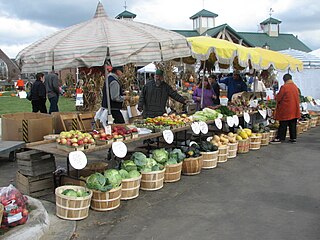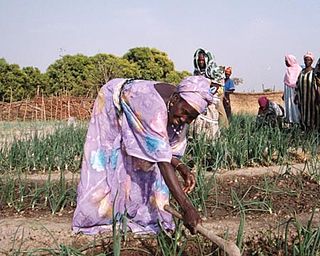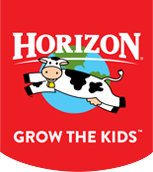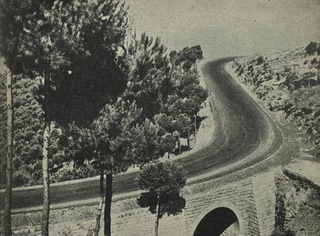Related Research Articles

Beirut is the capital and largest city of Lebanon. As of 2014, Greater Beirut has a population of 2.5 million, which makes it the third-largest city in the Levant region and the thirteenth-largest in the Arab world. The city is situated on a peninsula at the midpoint of Lebanon's Mediterranean coast. Beirut has been inhabited for more than 5,000 years, making it one of the oldest cities in the world.

A farmers' market is a physical retail marketplace intended to sell foods directly by farmers to consumers. Farmers' markets may be indoors or outdoors and typically consist of booths, tables or stands where farmers sell their produce, live animals and plants, and sometimes prepared foods and beverages. Farmers' markets exist in many countries worldwide and reflect the local culture and economy. The size of the market may be just a few stalls or it may be as large as several city blocks. Due to their nature, they tend to be less rigidly regulated than retail produce shops.
Agribusiness is the industry, enterprises, and the field of study of value chains in agriculture and in the bio-economy, in which case it is also called bio-business or bio-enterprise. The primary goal of agribusiness is to maximize profit while satisfying the needs of consumers for products related to natural resources such as biotechnology, farms, food, forestry, fisheries, fuel, and fiber.

Batata horra is a vegetable dish originating from Lebanon. It consists of potatoes, red peppers, coriander, chili, and garlic that are all fried together in olive oil.

An agricultural cooperative, also known as a farmers' co-op, is a producer cooperative in which farmers pool their resources in certain areas of activity.

Lebanese cuisine is the culinary traditions and practices originating from Lebanon. It includes an abundance of whole grains, fruits, vegetables, fresh fish and seafood. Poultry is eaten more often than red meat, and when red meat is eaten, it is usually lamb and goat meat. Dishes include copious amounts of garlic and olive oil, and dishes are often seasoned with lemon juice. Chickpeas and parsley are also staples of the Lebanese diet.

Aley is a major city in Lebanon. It is the capital of the Aley District and fourth largest city in Lebanon.


Horizon Organic is an American company, founded in 1991, that produces organic milk and other organic food products. Horizon Organic is the largest supplier of organic milk in North America. Its products are sold in supermarkets and grocery stores. Horizon produces organic milk in Maryland and also purchases the majority of its organic milk from more than 700 dairies in 23 states.

Dhour El Choueir, sometimes Dhour Shweir, is a mountain town in Lebanon located in the Matn District. It lies slightly north of the main Beirut - Damascus highway, overlooking the city of Beirut and the Mediterranean sea, some 30 km from Beirut and 42 km from Beirut International Airport in Khalde. This mountain town is one of Mount Lebanon's favored summer resorts, known for its extraordinary fresh air and is also important for its August yearly carnival, honoring Lebanon's emigrants. It is linked to Beirut via the Matn Express Highway, also known as the M90 through Baabdat.
Souk El Gharb, also spelled Suk, Sug al, ul, Suq), is a town located in the Aley District, Mount Lebanon Governorate, in Lebanon and its name translates to "Western Market".

The Beirut Marathon, is an annual event that takes place in Beirut, Lebanon, first held in 2003. It is a founding member of Asian Premier Marathons, and was accredited as a Silver Label Road Race by the IAAF. Unifying members of all political groups is a central theme to the race.

Tayeb may refer to:

The Mountain War, also known as the War of the Mountain, was a subconflict between the 1982–83 phase of the Lebanese Civil War and the 1984–89 phase of the Lebanese Civil War, which occurred at the mountainous Chouf District located south-east of the Lebanese Capital Beirut. It pitted the Christian Lebanese Forces militia (LF) and the official Lebanese Armed Forces (LAF) against a coalition of the Druze Progressive Socialist Party (PSP) and the PNSF's Popular Front for the Liberation of Palestine – General Command (PFLP-GC), Fatah al-Intifada and As-Sa'iqa backed by Syria. Hostilities began when the LF and the LAF entered the predominantly Druze Chouf district to bring back the region under government control, only to be met with fierce resistance from local Druze militias and their allies. The PSP leader Walid Jumblatt's persistence to join the central government and his instigation of a wider opposition faction led to disintegration of the already fragile LAF and the eventual collapse of the government under President Amin Gemayel.
The following is a timeline of the history of the city of Beirut, Lebanon.
Desertification is defined as “the rapid depletion of plant life and the loss of topsoil at desert boundaries and in semiarid regions, usually caused by a combination of drought and the overexploitation of grasses and other vegetation by people.” There is a common misconception that desertification spreads from a desert core. The truth is that land degradation can occur far away from deserts, and the presence of a desert has no effect on desertification. Another misconception is that droughts cause desertification. This is only true if the land had been abused before the drought occurred, and continued to be exploited during the dry season. If the land is well managed however, the land will recover from a drought once it rains again.

Cardo Decumanus Crossing was in the heart of Roman Berytus.
References
- ↑ Souk el Tayeb , Lebanon's first farmers market Archived 2007-06-09 at the Wayback Machine
- 1 2 "In Beirut, a feast de résistance - Los Angeles Times". Los Angeles Times . 4 June 2007. Archived from the original on 2019-12-16. Retrieved 2007-06-04.